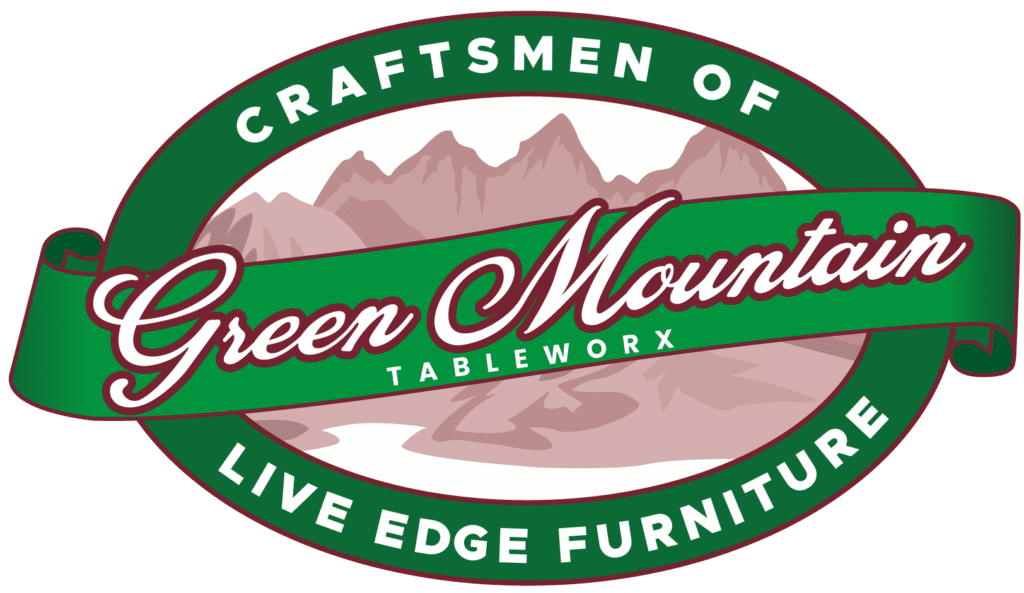As carpentry goes, we do things a little differently at Green Mountain Tableworx. We use reclaimed wood to make live edge furniture and cabinetry. Live edge cabinet making is a unique craft within the broader world of carpentry. While traditional cabinet makers often focus on clean, symmetrical lines and machine precision, live edge artisans embrace the organic, irregular shapes of natural wood. This approach not only requires a different aesthetic mindset but also demands a set of specialized techniques.
Here’s a closer look at the techniques live edge cabinet makers use and how they differ from other carpenters.
Material Selection
One key difference lies in the material selection process. Traditional carpenters usually work with milled lumber—wood that has been planed, edged, and made uniform. Live edge cabinet makers, on the other hand, seek out slabs that retain the natural contours of the tree, often including bark, knots, and even voids. Choosing the right piece of wood is crucial. It must be structurally sound but also provide opportunities for creative craftsmanship.
Tools and Handling
Once selected, live edge wood demands delicate handling. Traditional carpentry tools like jointers and table saws are often too aggressive to preserve the unique shape of a live edge. Instead, artisans may use hand tools, small sanders, or even carving tools to refine edges without compromising the natural form. Stabilizing imperfections—such as cracks or soft spots—is also common, using techniques like epoxy fills, bowtie inlays, or resin pours. When we use epoxy resin to make river tables we are stabilizing the wood while creating a unique piece of functional art.
Visible Joinery
Joinery also differs significantly. In standard cabinetry, hidden joinery is preferred for a sleek look. In live edge work, however, joinery can become a visual element. Mortise and tenon joints, dovetails, or even exposed dowels may be used not just for function but also to complement the organic feel of the wood.
Natural Finishes
Finishing is another distinctive step. While traditional cabinets may be painted or stained uniformly, live edge pieces usually receive natural oil or clear finishes that highlight the grain and irregularities. The goal is to let the wood’s character shine, not to mask it.
Live Edge Cabinet Makers | Green Mountain Tableworx
At Green Mountain Tableworx, our live edge cabinet makers combine traditional woodworking knowledge with a sculptor’s eye and an appreciation for nature’s imperfections. Their techniques reflect a philosophy that values uniqueness and craftsmanship over uniformity and mass production.

